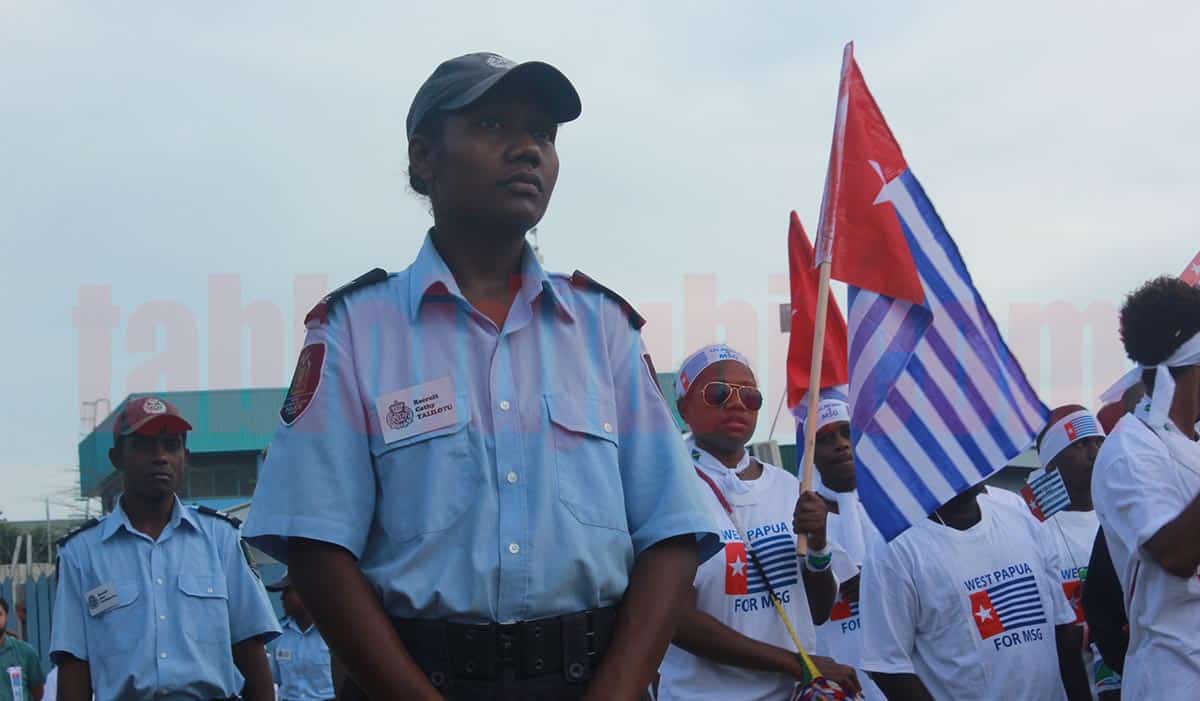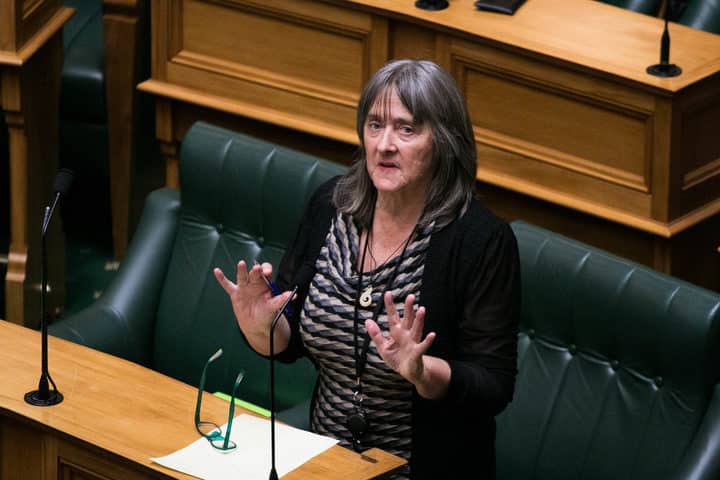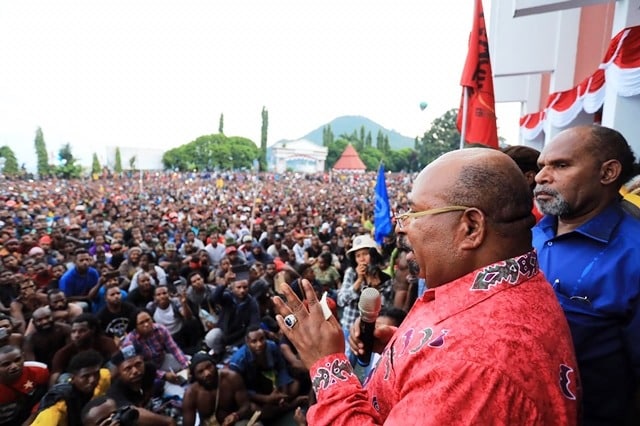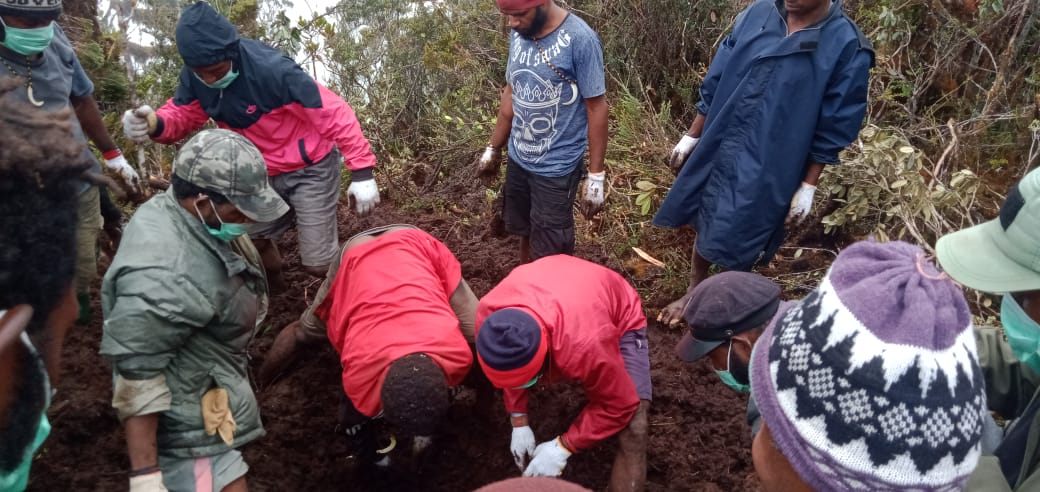
By Neles Tebay
THE Indonesian government is jumping into the Pacific in order to overcome the growing support for the Papua Liberation movement.
It is an undeniable fact that the Free Papua Movement (Organisasi Papua Merdeka/OPM) represented by the United Liberation Movement for West Papua (ULMWP) has been getting wider and stronger support from the Melanesians of all levels, from ordinary people in the villages up to the Politicians, and even the heads of government of each Melanesian country.
The Indonesian government, then, has already initiated with high level visit to some Melanesian countries in order to intensify its efforts to strengthen its diplomatic relationships and its economic collaboration with the Melanesian countries.
The foreign minister, Retno Marsudi, made an official visit to Papua New Guinea on February 26-28, 2015, and to Solomon Islands on February 28, and to Fiji on March 1, 2015 (Antara, February 28, 2015).
Two month latter, President Joko “Jokowi” Widodo made an official visit to Papua New Guinea on May 11, 2015.
The two official visits, on the one side, have brought about the upgrading the status of Indonesia from being observer to be an associate member at the Melanesian Spearhead Groups (MSG) which is a sub-regional grouping that consists of Papua New Guinea, Solomon Islands, Fiji, Vanuatu, and Kanaky People represented by FNLKS.
On the other side, it seems that the visits did not weaken the Melanesians’ support for the Papuan Liberation Movement. Despite the government visits, the head of Melanesian countries offered officially the status of observer membership to the ULMWP.
The acceptance of the ULMWP at the MSG for the Melanesians in the Pacific means that they were able to bring the Melanesians of Papua back to the big Melanesian Family.
Meanwhile, the Papuan liberation movement interprets the offer of observer membership status as the first political recognition they ever got from the head of independent states.
The former coordinating minister for political, legal and security affairs, Luhut Binzar Panjaitan, did official visit to Fiji and Papua New Guinea from March 30 to April 1, 2016.On behalf of the Indonesian government, he offered some US$ 5 million to the Fijian government. The minister also signed a memorandum of understanding on the economic cooperation with the government of PNG. He claimed that Fiji and PNG had already supported Indonesia’s bid for MSG membership.
The ULMWP has also submitted its proposal for full membership to the MSG. However its bid for full membership has been deferred to the next MSG meeting which will be held in September 2016, in Port Villa, Vanuatu.
The Council of Ministers (COM) of Vanuatu has already instructed the government to offer the status of full membership to the ULMWP and sack Indonesia out of MSG.
Two other members of MSG, namely Solomon Islands and the Kanaky people represented by the FNLKS have also shown their position in supporting the ULMWP’s bid.
We should wait and see what would be the outcome of the next MSG meeting in Vanuatu.
The Indonesian government could expand its cooperation with the governments of Melanesian countries. However, the influence of the civilian society organizations, the Pacific Council of Churches, the tribal chiefs, and ordinary Melanesians in the villages could not and should not be ignored and underestimated. The government should find ways to persuade them.
It is important for the government to convince the Melanesians in the Pacific through many different ways and means in order to weakening their support for the Papuan Liberation movement.
Nevertheless, the government needs to be reminded that the issues triggering the Papua conflict are not in the Pacific but in Papua. Therefore much of its attention should go not to the Pacific but to the Melanesians in Papua and West Papua provinces.
The way the Indonesian government treats the Papuans will influence the Melanesians in the Pacific. It is more importance for the government to convince the Melanesians in Papua that they are fairly treated as human being within the Republic of Indonesia.
The Melanesians in Papua and West Papua provinces should be convinced by the government that they are always treated equally and well-protected.
The government should show that the Papuans are not suspected as being separatists or the state enemy who could be killed anytime anywhere for any reason.
They must be convinced that they are fully respected as Indonesian citizens and therefore not being oppressed by Indonesia.
The Papuans must be convinced that they are not outnumbered by migrants and not becoming minority group in their ancestral land.
The government should convince the Papuans that they are not marginalized economically in their own ancestral land; their human rights are respected by the government; and they are not racially discriminated against; and their right to freedom of expression and assembly is fully respected by the government.
Once the Papuans are truly convinced that they have been and are well-treated by the government, they would not go to any Melanesian country in the Pacific to asking for their support and defense.
Nevertheless, should the Papuans become victims of all kind of ill-treatment committed by the Indonesian military and police, then, their Melanesian brothers and sisters in the Pacific will feel disturbed. They will not keep silent and let their brothers and sisters in Papua and West Papua endure suffering alone. Indeed they will push their respective government to speak out in order for defending human dignity of the Papuans in Papua and West Papua provinces.
It is now undeniable fact that Papua is already under the Melanesian radar. Anything, even the small one, the government does in Papua and West Papua Provinces it will bring about reaction in the Pacific.
Therefore, the government should start to convince first the Melanesian in Papua, then, to the Melanesians in the Pacific. (*)
Author is a lecturer at the Fajar Timur School of Philosophy and the Coordinator of Papua Peace Network in Abepura.














